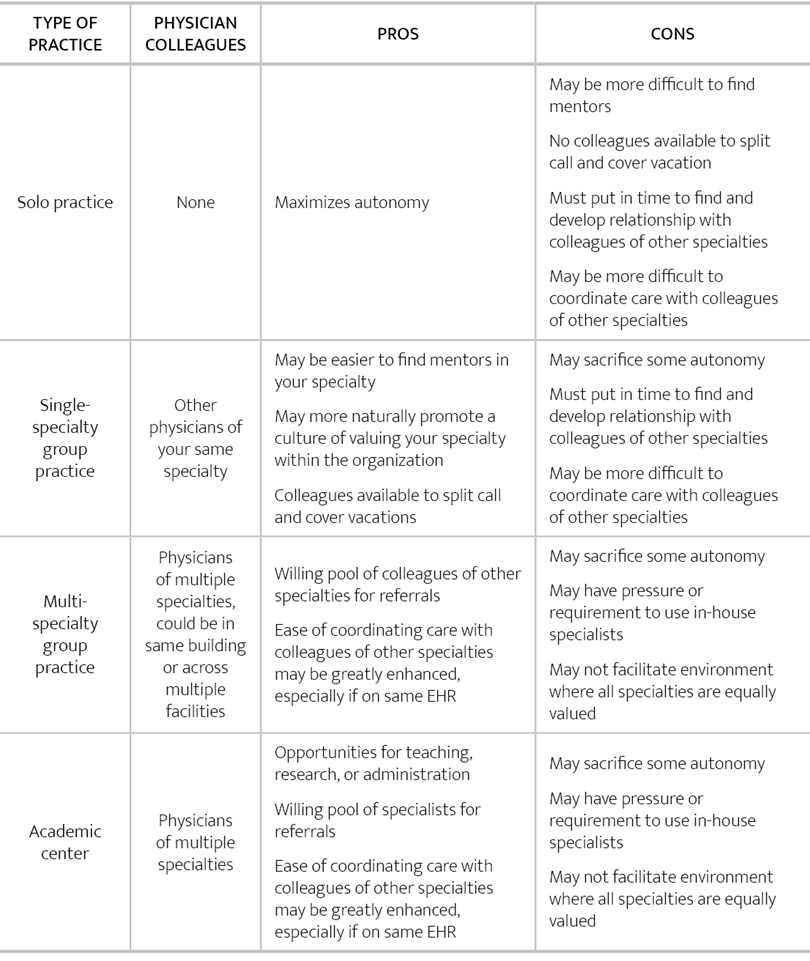Your first Ophthalmology job sets the stage for your professional journey in this exciting field. It’s not just about finding any job; it’s about finding the right job.
After years of dedication to training and hard work, you deserve a position that aligns with your goals, values, and aspirations. In this blog, we’ll discuss key considerations to keep in mind during your search.
So grab your coffee and let’s dive in!
Assessing Personal and Professional Goals
When searching for the right Ophthalmology job for you it’s important to nail down both your personal and professional goals. This serves as a compass (or GPS if you want to be more modern) to guide you if an opportunity is what you need and want.
First, identify your career objectives and desired work environment
Picture yourself in the future. What do you see? Are you passionate about a specific subspecialty within Ophthalmology? Do you envision yourself in a bustling urban practice or in a serene rural setting?
Understanding your career objectives and desired work environment will help narrow down your job search and ensure a harmonious fit.
Next, Evaluate long-term growth opportunities
As you explore job opportunities, consider the potential for professional development, mentorship programs, and opportunities to engage in research or academia.
Look for positions that align with your long-term ambitions, allowing you to constantly learn, evolve, and make a meaningful impact in the field.
Lastly, Consider Geographic Factors
When searching for your first Ophthalmology job, think about your location preferences, especially if you’re most likely going to live closer to where you work.
- Do you dream of practicing in a specific city or state?
- How is the cost of living in your target location compared to your salary expectations?
Additionally, consider lifestyle factors such as recreational opportunities, proximity to family and friends, and access to cultural amenities. Striking a balance between financial stability and a fulfilling lifestyle will contribute to your overall job satisfaction.
That being said, while it’s important to follow your heart, it’s equally crucial to consider the practical side of things. Research the demand for Ophthalmologists in your preferred locations.
- Are there enough job opportunities available?
- Do these opportunities meet your salary, bonus, student loan assistance, and benefit expectations?
You have to look for areas where you can thrive professionally and where your services are in high demand.
Understanding Practice Settings
Now that you’ve determined what your goals are and where you might want to look for job opportunities, it’s time to ask which practice setting you are interested in working in.
A table from AMA Steps Forward breaks down different practices setting pros and cons to help you decide:
In other words, private practice allows for flexibility, potential higher income, and the ability to build long-lasting relationships with patients.
Academic settings offer opportunities for research, teaching, and access to cutting-edge technology.
Large practices may provide stability, established referral networks, and a wider variety of cases, while smaller practices may offer a more personalized, family-like atmosphere.
So when deciding, consider your priorities, work-life balance, and career aspirations when evaluating the pros and cons of each practice type, then assess your personality, work style, and desired level of independence to determine which path suits you best.
Prioritize Work-Life Balance
Like we said, repeatedly. Finding your first Ophthalmology job is not just about work; it’s about achieving a harmonious balance between your professional and personal life.
Unless you don’t want to keep your sanity, if you do–here are key considerations before saying yes to a job opportunity.
Time is precious, so make sure you’re aware of what you’re signing up for. Dig into these aspects of the job role.
- Typical practice hours and schedule, including administrative time
- Surgery time vs. clinic time
- Support staff/team structure: Will you be wearing multiple hats?
- Call schedule: Do they value work-life balance or expect you to be available 24/7?
- Vacation and vacation coverage
- Weekend and nighttime coverage
And because life isn’t just about work, make sure to evaluate how the job’s demands will affect your personal life.
Will you have enough time to pursue your passions, spend time with loved ones, and nurture your well-being?
EMR and Technology Usage Expectations
This is another important aspect.Consider the EMR systems and technological advancements within the practice and how these systems integrate with clinical workflows and enhance patient care.
Assess the ease of use, data security measures, and the level of training and support provided for using EMR systems effectively.
- Do they provide EMR training during onboarding?
- Do they have support available when on-the-job?
Compensation, Benefits, and Contract Terms
The topic we’ve been waiting for. Money talk.
So time to put on your detective hat and compare the industry’s salary norm. Research and compare Ophthalmology salaries based on factors like experience, geographic location, and practice setting.
That way you get a fair compensation package that reflects your skills and expertise.
You can look beyond the digits,
Let’s say you found a great job fit but the salary is lower than what you expect, you can look for a compromise and consider the additional benefits they offer like:
- health insurance coverage
- retirement plans
- vacation and sick leave policies
- malpractice insurance
- potential bonuses
Don’t forget to carefully review the contract terms, including non-compete clauses, partnership opportunities, and termination conditions.
Ensure that the overall package aligns with your needs and provides long-term security.
Bonus Considerations
Questions to assess the right Ophthalmology job for you
- What is the overall support structure within the practice, including support staff and administrative resources?
- What is the patient population served by the practice? (e.g., general Ophthalmology, specialized clinics)
- What surgical and laser procedures will you be performing, and how frequently?
- What is the level of technology and equipment available in the practice? (e.g., advanced imaging, laser systems)
- Does the practice offer subspecialty opportunities or the ability to develop expertise in a specific area?
- Are there research or clinical trial opportunities within the practice?
- What is the volume and variety of pathology encountered in the practice?
- Is there access to teaching opportunities, such as working with residents or fellows?
- What is the source of patient referrals? Will I inherit an existing patient caseload from a retiring physician?
- What are the patients per day expectations?
- What is the call schedule like, and how are emergencies and after-hours care handled?
- Are there opportunities for professional development, such as conferences and continuing education programs?
Finally, if you’ve decided
Now, it’s time to cross the T’s and dot the I’s to ensure a smooth transition into this exciting chapter of your career.
A. Carefully, review your contract.
Seek legal advice if necessary to fully understand the implications of the contract.
B. Negotiate to secure working conditions
Don’t be afraid to negotiate! If certain aspects of the contract do not align with your expectations, discuss them with your employer. Negotiate for fair compensation, desirable working conditions, and additional benefits that will contribute to your overall job satisfaction.
Your career is too important to leave to chance. Remember, a fulfilling career in Ophthalmology begins with careful consideration and a deep understanding of your own needs
Take the time to gather information, explore different opportunities, and ask insightful questions. Delve into the details of each potential job, assessing how it aligns with your aspirations, values, and desired work environment.
——
Ready to find Opthalmology opportunities?



